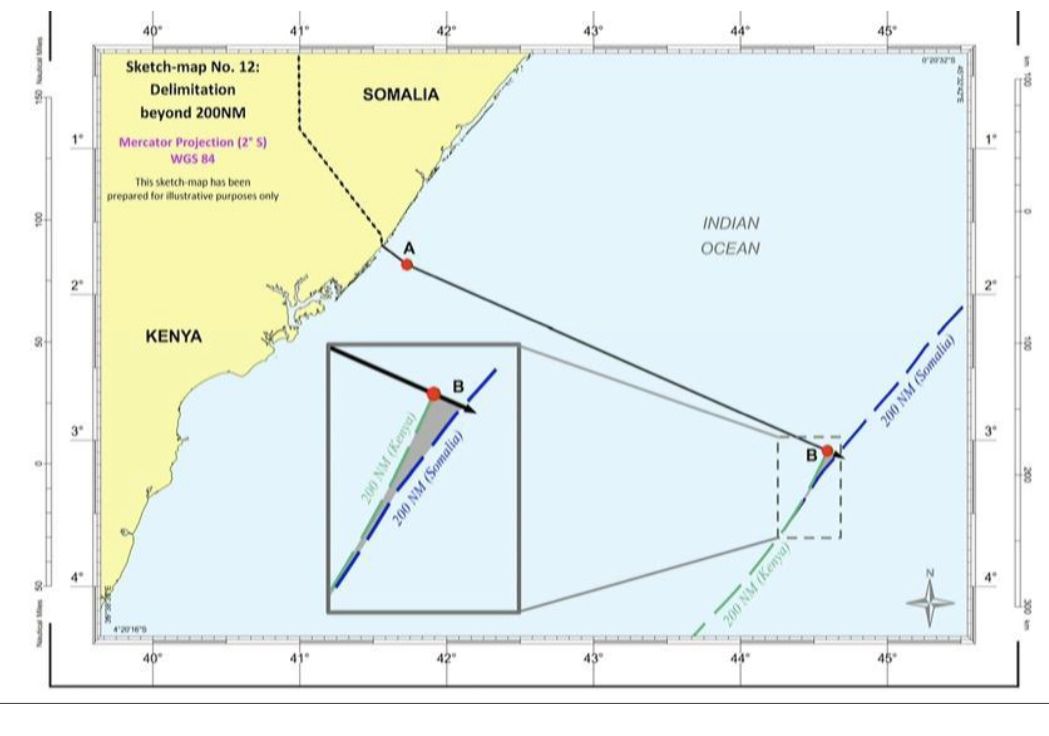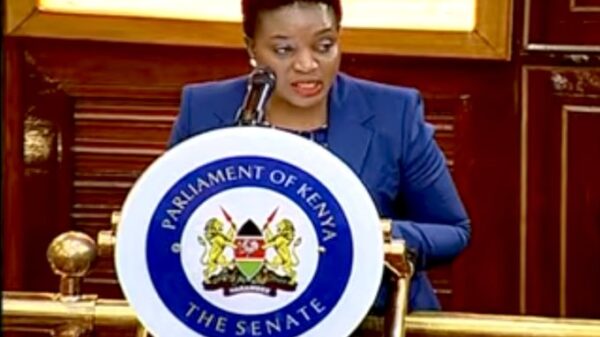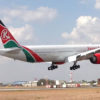Kenya was bound to reject the recent decision of the International Court of Justice (ICJ) regarding the disputed 100,000-square-kilometer maritime zone in the Indian Ocean claimed by the two countries, having already withdrawn its legal team in March this year.
Moreover, throughout the pendency of the case at the ICJ, Kenya has been calling for a diplomatic resolution to the dispute on the basis of the Memorandum of Understanding (MoU) signed by the two States in 2009, but which Somalia later disowned arguing in part that it was never ratified by its Parliament. Kenya also repeatedly invoked the United Nations Convention on the Law of the Sea (UNCLOS), to which both States are parties, as providing a dispute resolution mechanism.
While the Court had earlier rejected Somalia’s argument that the MoU was invalid by ruling that the document had the effect of a treaty binding both nations, it nonetheless upheld Somalia’s claims in the long-running dispute in its judgment delivered October 12, effectively redrawing the maritime boundaries delimiting the two countries’ exclusive economic zones in the Indian Ocean.
The disputed waters are rich in fisheries and are believed to contain vast amounts of oil and natural gas, which both countries have accused each other of illegally exploiting or attempting to exploit. In 2019, Somalia hosted an oil and gas conference in London prompting Kenya to accuse her neighbour of surreptitiously auctioning oil blocks in the contested territory. At one point, the two countries cut off diplomatic relations. And when Kenya shut the border with Somalia, the latter retaliated by banning khat imported from the former.
Fortunately, such diplomatic standoffs have always been resolved through dialogue. Kenya and Somalia have had a long history of conflict and cooperation or what one would describe as a love-hate relationship. Incidentally, Kenya’s military incursion into Somalia in 2012 was at the request of Mogadishu, to help contain the Al Shabaab terrorist group.
So, the decision by Somalia to file the case against Kenya at The Hague in 2014, came largely as a surprise considering that diplomatic avenues already existed to resolve the dispute. While Kenya initially may not have been fully engaged at the table, Somalia’s move was seen as premature if not motivated by ulterior motive. There have even been claims of powerful oil cartels in Europe having a hand in the case, with an eye on the potentially lucrative oil and gas exploration blocks.
To start with, Kenya had not even shown any intention to annex territory belonging to Somalia despite the latter’s political instability running for close to three decades, and Kenya having the upper hand militarily. In contrast, Kenya has had to shoulder a monumental humanitarian, security and economic burden as a result of the raging internecine conflict in Somalia.
First, there is the refugee crisis at Dadaab which currently hosts over 218,000 refugees from the troubled nation. It is also estimated that since 1991, when civil war erupted in Somalia, over five million Somali refugees have passed through Dadaab (read Kenya), many on their way to North America, Europe and other parts of the world, where they now live sheltered from the violence at home. It is well-documented that suspects linked to terror attacks on Kenyan soil have occasionally been traced to Dadaab, a clear indicator of the how the humanitarian and insecurity challenges are closely intertwined.
Second, Kenya has frequently borne the brunt of insecurity in war-torn Somalia most notably terrorist attacks linked to Al Shabaab such as the attack on Garissa University (2015) in which 150 people perished as well as the Westgate Mall (2013) and Dusit D2 (2019) where 71 and 21 people were killed respectively.
Third, Kenya has in the past incurred massive economic losses as a result of the negative impact of the spillover of violence from Somalia such as terrorism and sea piracy on key sectors like tourism and shipping.
For the avoidance of doubt, no one is accusing Somalia of sponsoring terrorism against Kenya. For despite the prolonged instability in Somalia, both countries have continued to enjoy cordial diplomatic, cultural and economic ties, the occasional spats notwithstanding. Kenya continues to play a vital role in stabilizing and securing Somalia as part of AMISOM.
There are two reasons for giving diplomacy a chance in resolving the prevailing impasse sparked off the ICJ verdict.
One, previous attempts at resolving the maritime dispute amicably provide a good basis to kick-start diplomatic efforts aimed at bringing both sides to the table. This should not be difficult given that recent disputes involving countries in the region have mostly been handled without having to resort to international courts and tribunals.
A case in point was the protracted trade war between Kenya and Tanzania which was only resolved when the leaders of the two countries met in Nairobi and agreed to end the persistent disagreements that led to frequent to bans on each other’s products. Similarly, in April this year, Kenya and Uganda entered a ceasefire in a simmering dispute over non-tariff trade barriers.
Tanzania and Mozambique recently averted a diplomatic fallout attributed to the Islamist insurgency in the latter’s northern region. Last November, there was a military escalation when Tanzania fired rockets into Mozambique in response to what it claimed to be insurgent incursions into its territory. The two countries have agreed to cooperate in fighting the militants.
Two, allowing an escalation of tensions between Kenya and Somalia will likely fuel further deterioration of insecurity with extremists taking advantage of the political fallout to advance their criminal ideology of violence by painting Kenya as the aggressor so as to stoke sympathy among those they target to recruit. Anti-Kenya sentiment fanned by populist Somali politicians keen on exploiting nationalistic propaganda in the coming elections in Somalia is a likely outcome.
Third, creation of a new conflict zone would lead to disruption of economic activities in the maritime zone depriving millions of people of livelihoods. The disputed maritime zone constitutes a key natural resource for the attainment of the Blue Economy agenda. Any threat of military action by both sides could repel investors and imperil ongoing infrastructure projects.
Such threat of hostilities is also likely to exacerbate instability in the Horn of Africa with countries in the region already pushing different interests in Somalia.
However, in the likely event that diplomacy fails, then Kenya has an inalienable right to protect and defend her sovereignty, which includes her territory and territorial waters, against internal and external aggression as provided for the Constitution.
Mr. Mwachinga is an Advocate of the High Court of Kenya. emwachinga@yahoo.co.uk




























































